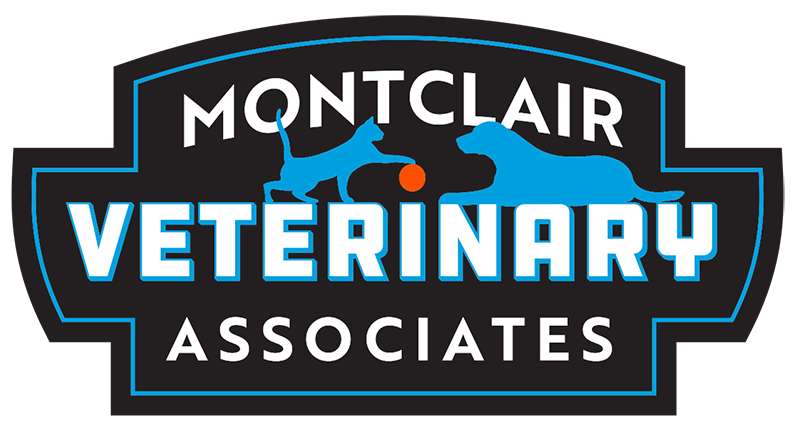Watching your beloved companion enter their golden years brings both cherished moments and new challenges as age-related conditions begin to affect their daily comfort and mobility. The diagnosis of chronic illnesses like arthritis, chronic kidney disease, or heart disease doesn’t signal the end of happy, fulfilling years together. Instead, it marks the beginning of a new chapter where thoughtful management and quality of life considerations can help your senior pet continue enjoying their favorite activities and family bonds.
At Montclair Veterinary Associates, we understand managing chronic conditions in aging pets requires a delicate balance between medical intervention and preserving the joy and comfort that make life meaningful for your furry family member. Dr. Cory Waxman brings years of experience in geriatric veterinary care, having graduated from the University of Pennsylvania School of Veterinary Medicine, and focuses on creating individualized treatment plans that prioritize your pet’s comfort and happiness above all else.
Quality of Life Assessment
Determining the quality of life of aging pets with chronic conditions requires careful observation of their daily experiences and overall well-being. Quality of life encompasses physical comfort, mental health stimulation, social interaction, and the ability to engage in activities that bring joy and satisfaction. Regular assessment helps guide treatment decisions and ensures that management strategies truly benefit your older pets.
Physical comfort indicators include appetite, mobility, breathing ease, and pain levels. Pets with good quality of life typically maintain interest in food, can move around comfortably, breathe without distress, and show minimal signs of pain or discomfort. Mental and emotional well-being can be assessed through social interaction with other pets, response to family members, and interest in surroundings. Behavioral changes such as altered sleep patterns, strange sounds, or decreased activity can indicate discomfort that needs attention.
Consider your pet’s individual personality and preferences when evaluating quality of life. Some pets derive great joy from gentle walks and social interaction, while others prefer quiet companionship and comfortable resting spots. The goal is to preserve the activities and experiences that matter most to your individual pet.
Management Strategies for Chronic Conditions
Effective chronic disease management typically involves multiple approaches working together to maximize comfort and function. Medications play a crucial role in managing pain, supporting organ function, and controlling symptoms. However, the best management plans also incorporate lifestyle modifications, environmental changes, and supportive care measures that address different functions affected by aging.
Pain management represents a critical component of caring pets with common chronic conditions. Modern veterinary medicine offers various pain relief options, including anti-inflammatory medications, joint supplements, and alternative therapies. The goal is to provide effective pain control while minimizing side effects and maintaining quality of life. Early diagnosis of pain and discomfort allows for prompt intervention, which can significantly impact your pet’s condition and overall well-being.
Environmental modifications can significantly improve comfort and safety for pets with chronic conditions. Simple changes like providing orthopedic bedding, installing ramps or steps, and ensuring easy access to food and water can make daily activities more comfortable for older pets with mobility issues. These adaptations become especially important as pets age and disease processes develop slowly over time.
Nutritional Support and Weight Management
Proper nutrition plays a vital role in managing chronic conditions and supporting overall health in senior pets. Therapeutic diets designed for specific medical conditions can help manage chronic kidney disease, support heart health, and provide joint support for arthritis. Weight management is particularly important, as weight gain puts additional stress on arthritic joints and can worsen other chronic conditions, while weight loss may indicate advancing disease. As a pet parent, monitoring your dog’s body condition and nutritional intake is essential for maintaining optimal health.
Regular monitoring allows for early detection of changes in condition status and prompt adjustment of treatment plans. This may include periodic blood work to screen for liver disease or other concerns, blood pressure monitoring, and physical examinations to assess disease progression and treatment effectiveness. Early diagnosis of complications enables your veterinarian to adjust medication protocols before symptoms worsen.
Creating Comfort and Maintaining Bonds
Managing chronic conditions successfully requires focusing on maintaining the human-animal bond while adapting to changing needs. Many pets with chronic conditions continue to enjoy family activities with minor modifications. Short, frequent walks may replace long hikes, while cozy indoor activities can provide mental stimulation and social interaction. As a pet owner, recognizing early signs of discomfort or sudden changes in behavior helps ensure your pet receives appropriate ongoing care.
The following strategies can help maintain the quality of life for pets with chronic conditions:
- Establish consistent daily routines that provide security and predictability
- Create comfortable resting areas with supportive bedding and easy access
- Modify exercise routines to match your pet’s current abilities and energy levels
- Provide mental stimulation through gentle play and interactive feeding
- Maintain regular veterinary monitoring to adjust treatments as needed
Remember, small adjustments can make significant differences in your pet’s comfort and happiness.
Contact Montclair Veterinary Associates for Senior Pet Care
Your aging pet deserves compassionate, comprehensive care that prioritizes comfort and quality of life throughout their golden years. Dr. Cory Waxman has been providing dedicated veterinary care to Northern New Jersey pets since 2011, combining advanced medical knowledge with a deep understanding of the human-animal bond to create management plans that truly serve your pet’s best interests.
Managing chronic conditions in aging pets requires an ongoing partnership between you and your veterinary team to ensure your pet’s comfort and happiness. We’re here to support you through every step of your pet’s journey, providing the medical care and guidance needed to make the most of your time together. Contact Montclair Veterinary Associates at (973) 712-8393 or schedule an appointment through our contact form to discuss how we can help your senior pet live their best life.
Frequently Asked Questions About Managing Chronic Conditions in Aging Pets
What are the most common chronic conditions in senior pets?
Common chronic conditions in older pets include arthritis, chronic kidney disease, heart disease, liver disease, and cognitive dysfunction. These conditions often develop slowly over time, making early diagnosis crucial for effective management.
What are the early signs that my pet may have a chronic illness?
Early signs of chronic illnesses include behavioral changes, weight loss or weight gain, decreased appetite, difficulty breathing, increased thirst, joint pain, changes in sleep patterns, decreased activity, and strange sounds during breathing or movement. Sudden changes in your pet’s condition should prompt immediate veterinary evaluation.
How often should aging pets visit the veterinarian?
Senior pets benefit from frequent visits – typically every six months – to monitor for common signs of disease and ensure early diagnosis of emerging conditions. These appointments allow your veterinarian to adjust medications and provide ongoing care tailored to your pet’s health needs.
Can medications help manage chronic conditions in senior pets?
Yes, medications play a vital role in managing chronic illnesses in aging pets. Medication protocols may include pain relievers for arthritis, cardiac medications for heart disease, and therapeutic drugs for chronic kidney disease or liver disease. Proper medication management can significantly impact quality of life.
What role does nutrition play in managing chronic conditions?
Nutrition is essential for long term care of senior pets with chronic illnesses. Therapeutic diets support different functions affected by disease, help prevent weight gain or manage weight loss, and can slow disease progression in conditions like chronic kidney disease and heart disease.
Are senior pets at higher risk for developing multiple chronic conditions?
Yes, older pets are at higher risk for developing multiple medical conditions simultaneously. Research shows almost half of senior pets experience more than one chronic disease, making comprehensive senior pet care and regular monitoring essential.
How can I tell if my pet's quality of life is declining?
Common signs include persistent decreased appetite, difficulty breathing, inability to enjoy favorite activities, severe joint pain, significant cognitive decline, or symptoms that don’t respond to medication. As a pet parent, monitoring your dog’s body condition and overall behavior helps assess your pet’s condition.
What should I expect for long-term care of my pet?
Long term care for aging pets involves regular veterinary ongoing care, medication management, nutritional support, environmental modifications, and quality of life assessments. As a pet owner, you’ll work closely with your veterinarian through frequent visits to ensure your senior pet receives appropriate care as they age.

